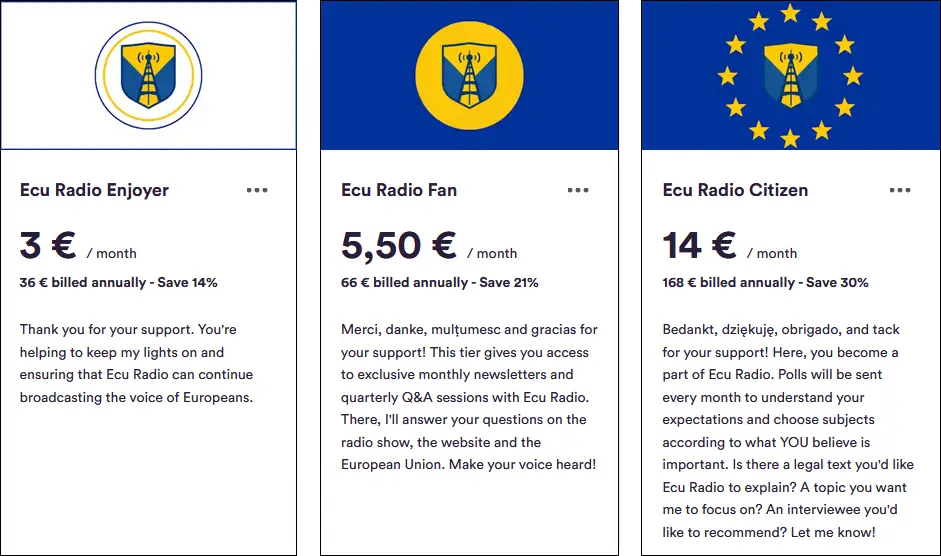Hard Power: a Vital Necessity for the Europe Union
There are two distinct kinds of power that nations can use to define themselves: soft power and hard power.
The Nature of Hard Power

According to the Oxford Dictionary, Soft power is “a way of dealing with other countries that involves using economic and cultural influence to persuade them to do things, rather than military power.” This is an area where the European Union excels in multiple ways. Its normative power is unparalleled, made possible by an economy too significant for corporations and countries to ignore. This economic influence ensures that partners and rivals alike follow its standards, protecting consumers. It is also due to its economy that people learn French, German, Spanish, and other languages to better integrate and understand their target audiences. And while its multiple cultures may not be as widespread as American or Japanese cultures, the EU still benefits from centuries of unparalleled artistic creations in literature, music, comics, theater, and cinema, attracting new fans every day.
Hard power, on the other hand, is “an aggressive (if not coercive) approach to international political relations, especially one that involves the threat of military power.” In this area, the EU is lacking. A country with hard power can deter neighbors from invading its territory or compel allies to fall in line when they act against its interests. Historically, it was the hard power of the USSR and the US that forced France, the United Kingdom, and Israel to withdraw from the Suez Canal during their 1956 operation[1]. It was their hard power that led to interventions in Vietnam and Afghanistan, aiming to bend these countries to their will. In more recent times, hard power has initiated wars in Iraq and Ukraine, seeking to expand influence and control.
The Good, the Bad, and the Unwilling
Hard power is a complex tool. When used appropriately, it serves to defend borders and people. This logic led to the formation of the North Atlantic Treaty Organization (NATO) in 1949. European nations, still reeling from the Second World War, offered the United States numerous concessions in exchange for the promise of aid in case of Soviet aggression:
- Containment of the Soviet rival on Western borders, preventing war against NATO members.
- US military bases, missile launch sites, and nuclear launch sites on European soil.
- Commitment to support the United States if attacked. To date, the US is the only country to have invoked Article 5, requiring member states to come to its aid.
- A market willing to buy US military equipment and unlikely to develop its own defense industry, ensuring military dependence.
- Influence over European diplomatic and defense policies, effectively subservient to American interests, as European nations cannot wage war without US approval, as exemplified by the Suez Crisis.
However, in the wrong hands, hard power becomes a tool for aggression, often for dubious or illegal reasons. The Warsaw Pact, the Soviet response to NATO, was built on similar premises and offered comparable advantages to the USSR. A key difference, however, was its largest engagement against one of its own members during the 1968 Invasion of Czechoslovakia to suppress the Prague Spring’s political liberalization[2].
The EU has never considered itself a hard power organization. Its members are sovereign countries with full control over their armies, and its primary purpose is peace, which is at odds with hard power. The adage from Lord Acton, “Power corrupts; absolute power corrupts absolutely,” still resonates with many Europeans. The exception is France, which, under Charles de Gaulle, sought diplomatic independence and a vision of European collective security that clashed with American dominance. This culminated in France’s withdrawal from NATO’s integrated military organization in 1966, removing US bases from its soil, preferring cooperation agreements that allowed the country to develop its own nuclear deterrence and military technologies free from US influence.
However, France is just one of 27 member states, and by 2025, it became clear that this lack of hard power poses a threat to Europe.
Hard Power in 2025: The New Paradigm
On both western and eastern european borders, the situation has worsened. The War in Ukraine, initiated by Russia, demonstrated Russia’s willingness to use its military against European countries and interests, emboldened by the lack of tangible consequences for previous actions in Crimea and the Donbas. Meanwhile, the new American administration has shown unprecedented hostility and loathing toward the European Union, casting doubt on its commitment to defend NATO allies unless they increase their financial contributions. Or to do use their President’s words: “Pay more”[3].
Facing threats on its eastern borders and uncertainty about western allies’ support, the EU’s only solution is to acquire hard power. This power already exists among its member states but is insufficient to deter aggressive actions from Russia or potential coercion from the United States.
Thankfully, the EU is now aware of this situation and is taking steps toward rearmament. The Commission has unveiled a white paper for European Defense and the ReArm Europe Plan[4]., described as an “ambitious defense package providing financial levers to EU Member States to drive an investment surge in defense capabilities.” The European Parliament has welcomed this initiative, urging the EU to ensure its own security, as “business as usual is no longer an option against the threats and attacks toward European security. To achieve peace and stability in Europe, the EU must support Ukraine and become more resilient itself”[5].
Ecu Radio’s Stance
We will see that political courage will stay and keep guiding the path to acquiring European hard power, a mandatory part of the Autonomorphosis we champion. We stand for the defense of European borders, peace on its land, and full independence in internal matters.
Sources
[1] The Suez Crisis – Virtual Center for Knowledge on Europe
[2] The Invasion of Czechoslovakia – Virtual Center for Knowledge on Europe
[3] Trump: If NATO members don’t pay, US won’t defend them – Reuters
[4] Commission unveils the White Paper for European Defence and the ReArm Europe Plan/Readiness 2030 – European Commission
[5] MEPs urge the EU to ensure its own security – European Parliament
Ecu Radio needs your support
Ecu Radio is an independent news website and podcast show, run full-time by a single dedicated contributor (for now). Support our work, get exclusive perks and help keep us going, starting from only 3€ per month. Let's unleash Europe's potential together!
Click here to support Ecu Radio

